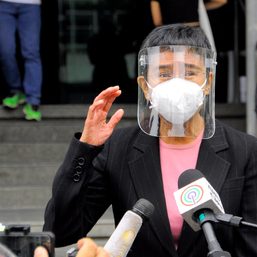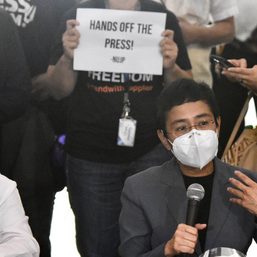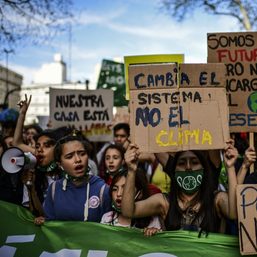SUMMARY
This is AI generated summarization, which may have errors. For context, always refer to the full article.
VIDEO. Rakim Panarigan’s home, still standing after the storm.
MANILA, Philippines – On Dec 16, 2011, near midnight, Rakim Panarigan, 28, an irrigation worker, woke up to the rain lashing against the roof of his home in Purok 17, Mandulog, Iligan. His wife Norsanie was asleep in the same room on the second floor of the small concrete house, along with his mother Tanding and his five children—7-year-old Jackery, 6-year-old Jomayca, 5-year-old Johayver, 4-year-old Javer and 3-month-old Joqin.
There was nothing to see out the window that Thursday night, the village had no power, and the rain fell fast and hard. He checked on his grandmother Pokil, already in her late-90s, who was asleep on the first floor. Pokil was still asleep, but her bed was already afloat.
Rakim and his wife began packing. They planned to take the short walk to a neighbor’s house that stood nearer the river but on higher ground. The house was better built than Rakim’s, and had a better chance of withstanding the floods. He carried his children out of his house one at a time, then let the women follow.
There were many others who headed to the house by the river. The children were passed on to adults. Everyone climbed to the second floor, until the water started rising outside. The men went down and tried to break the cement walls, to lower the pressure and to let the water through.

It wasn’t more than five minutes later when a log rolled against the house. The walls fell. Everyone was thrown into the raging river. Rakim heard one child shouting, Jackery. He caught two other children, swam to a tree, and held tight to the trunk while clutching the two. He thought they were safe, steady in the rush of water, until the tree he clung to was knocked down by another uprooted tree. He fell into the water and lost hold of the children. He swam after them, slammed against a sheet of tin roofing that cut his arm open from wrist to elbow. The children disappeared. He says the waves took them away.
Rakim said he wanted to die. There was no reason to be alive when his family was not. He let himself be taken by the waves. He found himself inside a floating water tank, and was later dragged out by neighbors waiting out the storm who saw him while he floated by a second-floor window.
The water receded at four in the morning. They found Jackery not far from where they were, the small body lying on the sandy ground. He was buried the same day.
Food, wood, hammer, nails
Rakim’s relatives separated to search for the others. Some headed to the city, the others to the local hall, hoping the bodies would be found. None have arrived. They are still searching.
Purok 17, where houses crowded together and banana plantations sprawled only a few days ago, is now a sandy stretch of beach, dotted with the skeletons of a few homes. The river has swelled and split into tributaries. What were once grassy tracts of land is now sand. They call it a desert.
Rakim stands on the second floor of the house he and family had abandoned. He points out the double bed, the mattresses, the place where his sons slept. This is where Jackery would sleep he says. This is where my mother was. This is where I slept. The home is still standing among piles of massive rocks. He says they would have lived if he had chosen to stay.
He tells his story for the first time, surrounded by his neighbors, who have watched him for days as he sat across his house in vigil. He will not talk of his feelings; he says they are his alone. He asks to send word to all those who can help. They need food, he says, food and wood and hammers and nails to rebuild the school for all those children still living, and homes for the families who lost everything. There are 27 dead in Purok 17, but only five have been recovered.
He will leave once he has helped all he can, and go away to a place far away from where five small children once called him father. – Rappler.com
Add a comment
How does this make you feel?





There are no comments yet. Add your comment to start the conversation.